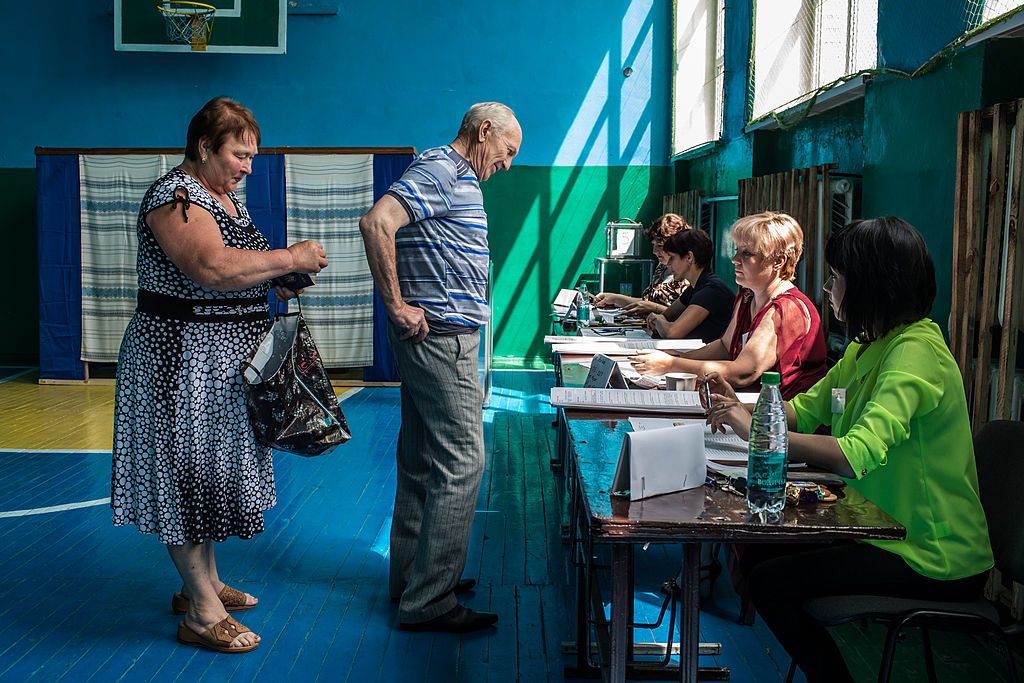Opinion: What to do about Ukraine's brain drain

MILAN – In 1916, amid the horror of World War I, the American economist John Bates Clark made an observation that remains all too relevant. “There are effects of war which are more tragic than the economic burden it will place on future generations,” Clark noted, “and there are some that are more morally revolting, but there are none which will last longer or do a greater total amount of harm.”
Fast-forward to Ukraine today. Even if Russia’s war of aggression were to end soon, the economic burden it has created will endure.
According to estimates by the Kyiv School of Economics, the damage done just to Ukraine’s infrastructure as of September 2023 exceeds $150 billion (at replacement cost), or roughly 85% of annual GDP. The full cost of reconstruction will, of course, be much higher. In March 2023, a joint assessment by Ukraine’s government, the World Bank Group, the European Commission, and the United Nations estimated that recovery from the first 12 months of the war would cost $411 billion over the next decade. With the war still continuing, Ukrainian President Volodymyr Zelensky has said that the figure may end up over $1 trillion.
Yet lost in these discussions is another cost that could set Ukraine back many years: brain drain. Russia’s full-scale invasion in February 2022 fueled migration on a scale unseen since World War II. Over one-third of the Ukrainian population (estimated at 44 million in 2021) has been displaced, and as of Nov. 14, there are 6.3 million recorded Ukrainian refugees globally. While this number has decreased slightly from its peak of 7.5 million last September, it remains substantial, with about 15% of the pre-war Ukrainian population now residing outside the country.
What does this mean for Ukraine’s human capital? There is historical evidence for positive self-selection of displaced people during wars (meaning those who leave chose to do so and are more educated than those who remain), and the Ukrainian case appears to be no exception. Some 90% of Ukrainian refugees are women and children, reflecting the fact that, with few exceptions, martial law prohibits men aged 18 to 60 from leaving the country.
Moreover, surveys show that the share of refugees with a tertiary education (university studies or vocational/technical education) is far higher than among the overall Ukrainian population. As rockets and missiles rained down on Ukrainian cities, many educated people – most of them women – packed up and left. Whether they will return after the conflict remains to be seen. Bringing back human capital can be far more complicated than rebuilding roads or bridges.
Despite the Ukrainian education system’s extraordinary efforts to adapt to wartime conditions (usually by resorting to online schooling), the combination of the COVID-19 pandemic and the invasion has created huge gaps in educational attainment. At the same time, the large-scale displacement of people has destroyed millions of jobs. While some of these jobs will come back after the war, many will be replaced by jobs that are likely to require higher-level or different skills. For example, since February 2022, the demand for soft and analytical skills has increased, suggesting that any recovery effort must include large remedial and retraining programs.
Alongside investments in education, Ukraine also will need to make better use of the human capital that has remained. One idea is to increase women’s rate of labor-force participation, which was low before the war. This could be achieved by adopting employment-friendly family reconciliation policies, improving the infrastructure for remote working, or creating government-sponsored childcare infrastructure. Likewise, integrating young people into the labor market after the war will be complicated and difficult, but absolutely essential.
Counteracting the effects of the war’s brain drain calls for a two-pronged strategy. First, Ukraine will need to encourage as many people as it can to return after the war. While such decisions often depend on personal (non-economic) factors, we know that fiscal incentives can help increase the overall number. After all, many other European countries already have preferential tax schemes to attract high-skilled individuals.
For example, Italy’s Controesodo (“against exodus”) program grants a generous income-tax exemption to returning expatriates, and recent evidence suggests that eligible individuals were 27% more likely to move back to Italy after the policy was enacted in 2010. When these policies target young, highly skilled individuals, the benefits (in terms of fiscal revenues and positive externalities) can far outweigh the costs. In a future post-war scenario, Ukraine should follow other European countries in creating a tax scheme to lure people back – albeit with a gradual phase-in and precise qualifying conditions to prevent abuses.
But reversing outflows takes time, and many refugees may never return. Thus, the second prong in the strategy is to foster interconnectivity between Ukrainian expatriates and the domestic economy. Internet connections and geographical proximity with destination countries can significantly reduce the extent of brain drain that comes with emigration.
The experience of refugees to Germany from the former Yugoslavia is revealing. Research shows that the largest increases in post-war exports from ex-Yugoslav republics were recorded in sectors with the highest share of repatriated refugees, perhaps reflecting the benefits of productivity-enhancing knowledge that they brought back with them. In today’s world, such knowledge transfers can happen online.
As we learned during the pandemic, remote work also can be a powerful tool to reclaim or preserve some of Ukraine’s lost human capital. Equally, remedial education to cope with war-driven gaps in educational attainment can draw on contributions from refugees, a significant share of whom are former teachers. Lessons, innovations, and “knowledge work” can still come back to Ukraine – even if people do not.
Editor’s Note: Copyright, Project Syndicate. This article was published by Project Syndicate on Nov. 22, 2023, and has been republished by the Kyiv Independent with permission. The opinions expressed in the op-ed section are those of the authors and do not purport to reflect the views of the Kyiv Independent.














